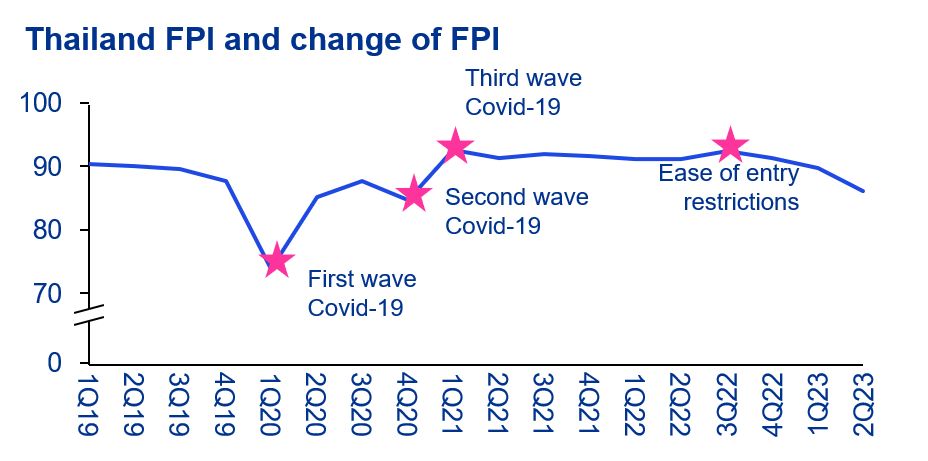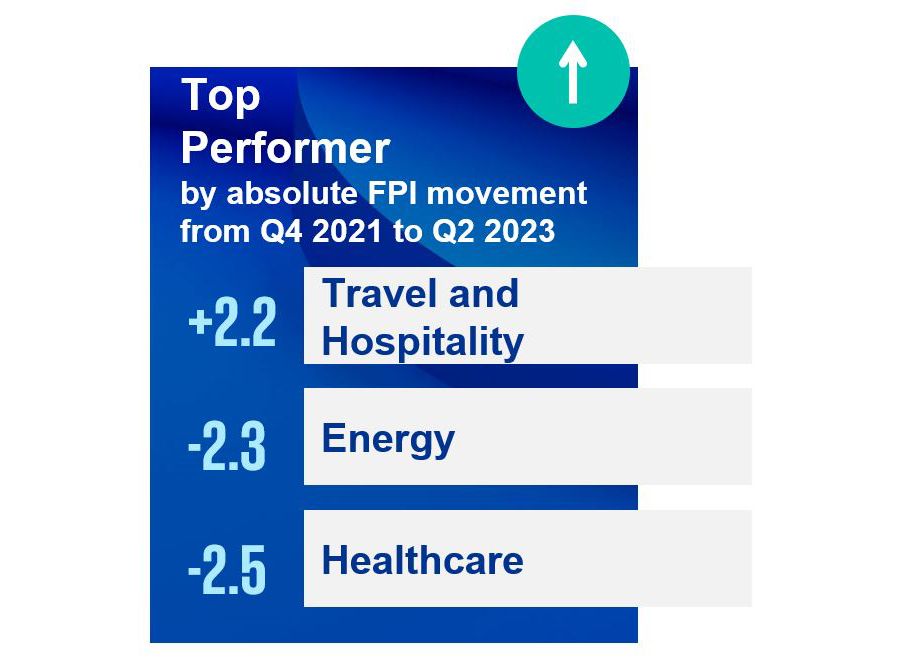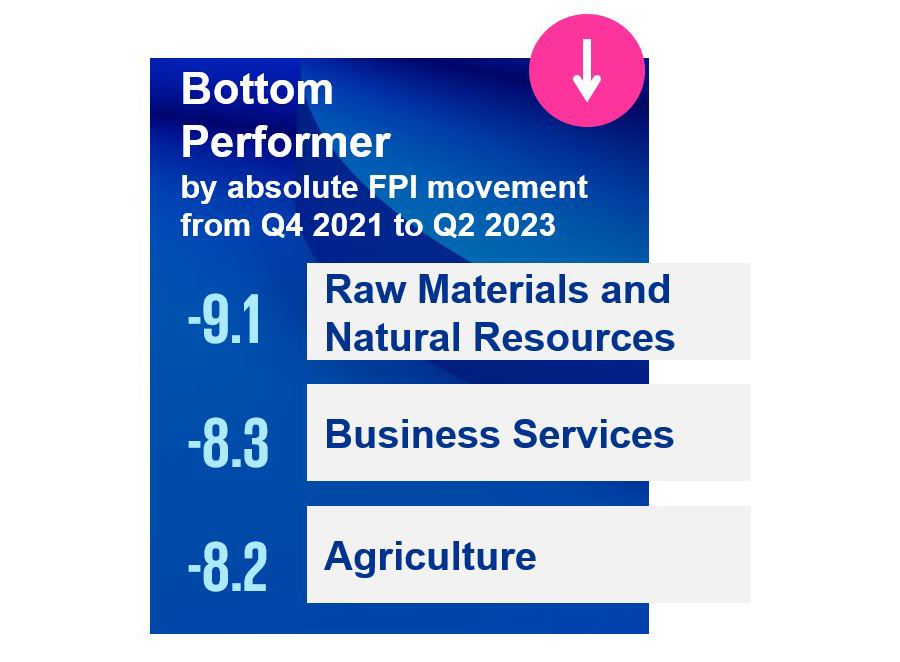After a decade of economic growth, the COVID-19 pandemic had a significant impact on business activities and redirected attention towards financial distress. The KPMG FPI serves as a global indicator of financial performance that identifies trends and levels of distress among listed companies.
Introduction of FPI
The KPMG FPI is a metric used to measure a company’s financial health. It draws from a probability to financial default model developed by leading economists1. The model is based on eight explanatory variables encompassing financial and market variables. The score extracts raw data from the S&P Capital IQ database and ranges from 0 to 100. The lower the score, the lower the financial health. In contrast, a higher score indicates a stronger financial position.
The FPI is computed across the world, but can be broken down to country and sector level.

After a strong post-COVID recovery, Thailand’s FPI is declining due to global economic pressures.
Thailand’s FPI development over time clearly shows the impact of the COVID-19 pandemic, with the first wave hitting in Q1 2020, decreasing the FPI score from 87.9 to 74.2 (-16%).
This especially reflects the COVID-19 restrictions and the uncertain outlook. However, the FPI recovered relatively quickly, with the second and third waves having a lower impact of -3% and -1% respectively.
The easing of border restrictions led to a peak in Thailand’s FPI in the third quarter of 2022. Since then, Thailand’s FPI has been on a slow downward trend, reflecting global challenges such as high inflation, rising interest rates, geopolitical tensions, and the ongoing conflict between Russia and Ukraine.

Impacted by global economic pressures, Thailand’s FPI has gradually deteriorated since Q4 2022. This is consistent with BOT’s recent outlook on the Thai economy, which expects a softening in growth. This downward trend can be observed across individual sectors, except for travel and hospitality, which has improved as the tourism recovery continues.

After enduring significant setbacks from COVID-19 restrictions in the past three years, the travel and hospitality sector in Thailand is gaining momentum again. The main drivers of this recovery include increased domestic tourism due to affordability, as well as the return of international travelers.
The energy sector, as the second strongest performer, experienced the lowest decline in FPI. This was driven by an increasing demand for coal products and the growth of independent power generation, which is supported by central policies aimed at expanding power generation.
Thailand's healthcare sector has also seen a decline in FPI due to overall economic pressures, such as inflation and dampened consumer spending. However, growth prospects for the sector remain positive, driven by Thailand’s aging population, rising government support, and the post-pandemic acceleration in digital healthcare and medical tourism.
Raw materials saw a sharp decrease in FPI. Factors negatively impacting the industry include increased operational costs, especially in the steel industry, arising from the rise of daily minimum wage announced in August 2022. Additionally, increased prices in materials caused by the Russian and Ukrainian conflict and the increased fuel tariff, which is increasing electricity costs significantly.
Companies in the Business services sector still face challenges in obtaining the right mix of in-house and external resources to manage essential operations during the post-pandemic period. In particular, businesses focusing on customer services outsourced by state enterprises are facing a weakening demand, and budgets are under review or delayed.
The agriculture sector is facing weakening demand due to several factors. These include the economic slowdown of Thailand’s key trading partners, particularly in China, where the new self-reliance policy is impacting agricultural exports. Global inflationary pressure on animal feeds has also led to substantial price increases.

Find more details of all sectors and subsectors FPI on our interactive FPI website. KPMG helps management to stabilize the business, reorganize borrowings, enhance profitability and build a platform for sustainable growth.
Sources: KPMG FPI database, SCB EIC, Fitch Solution, Krungsri Research, Ministry of Commerce, Nation News, Thai PBS news
Key contacts
Connect with us
- Find office locations kpmg.findOfficeLocations
- kpmg.emailUs
- Social media @ KPMG kpmg.socialMedia


